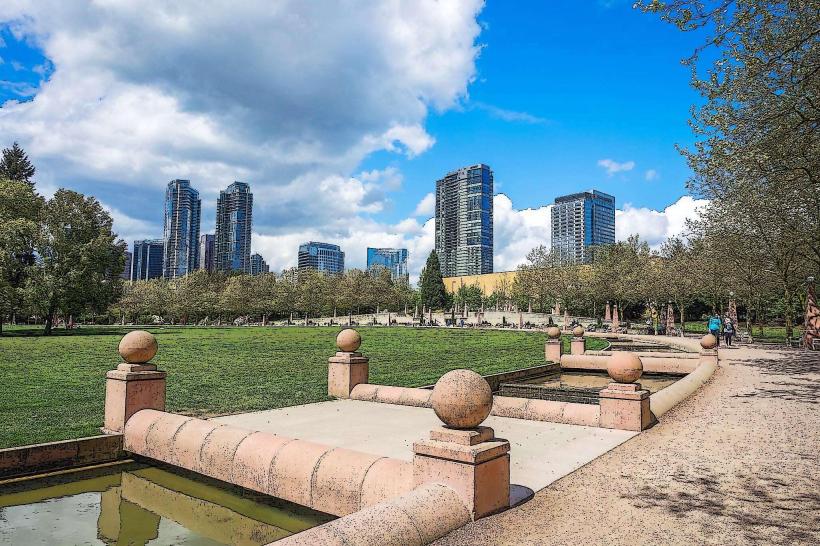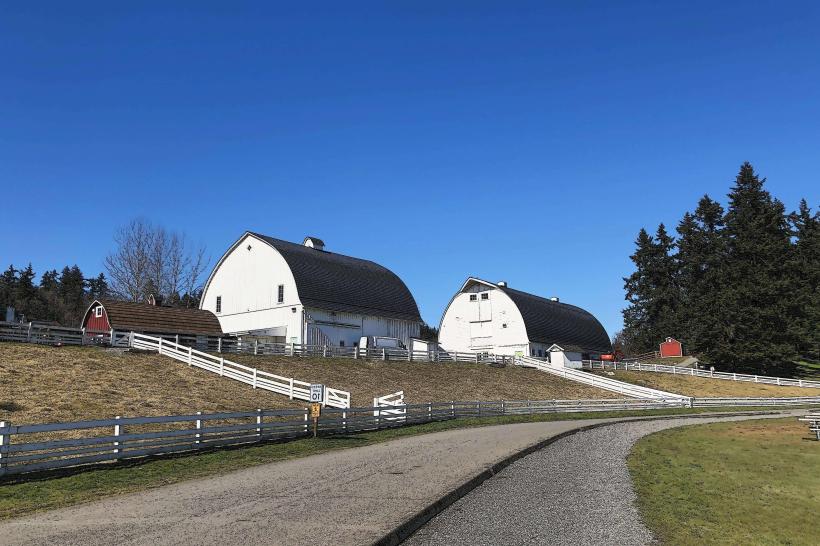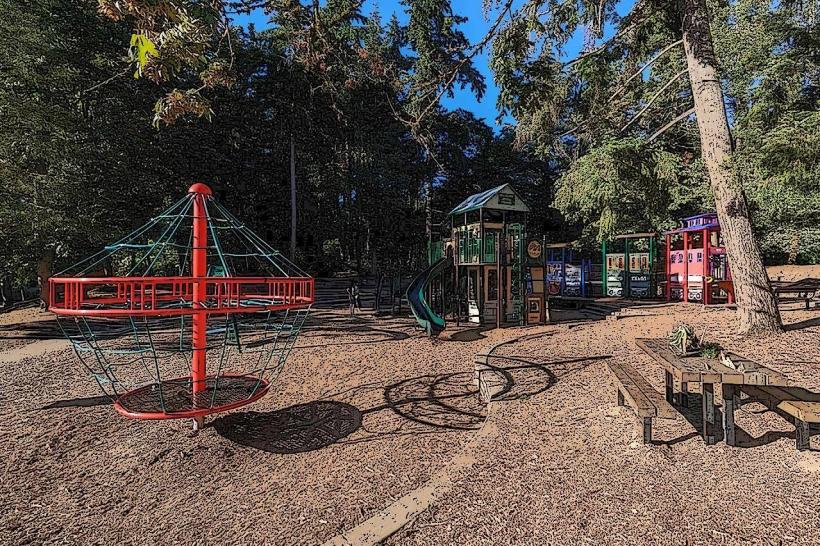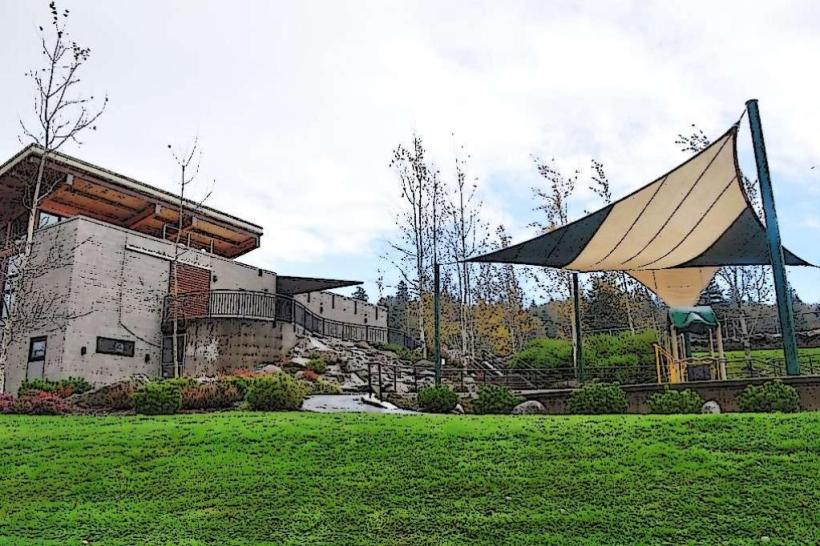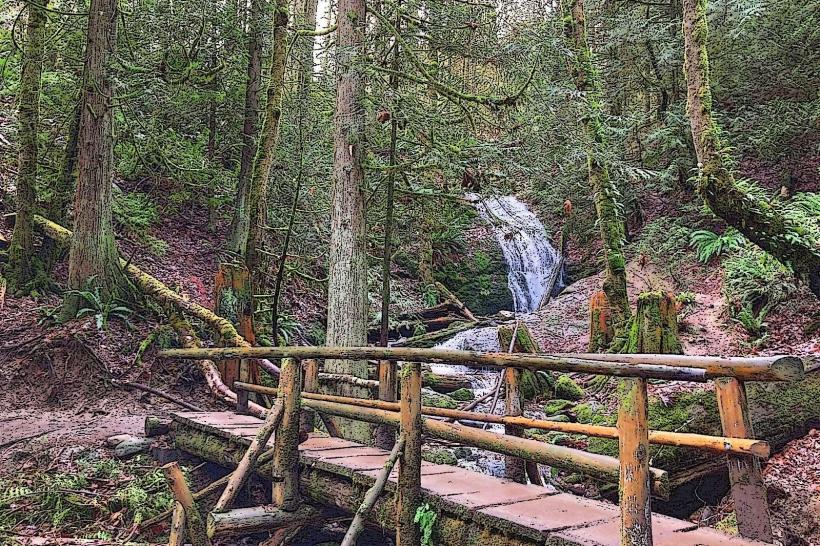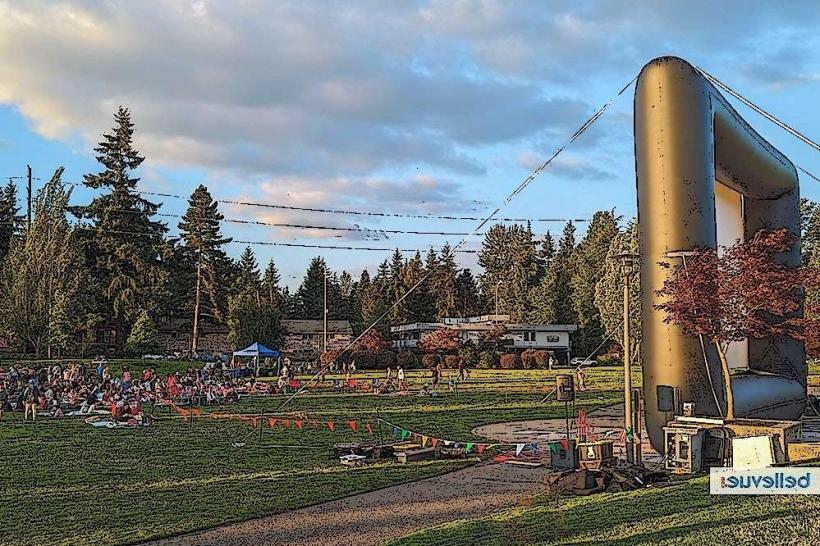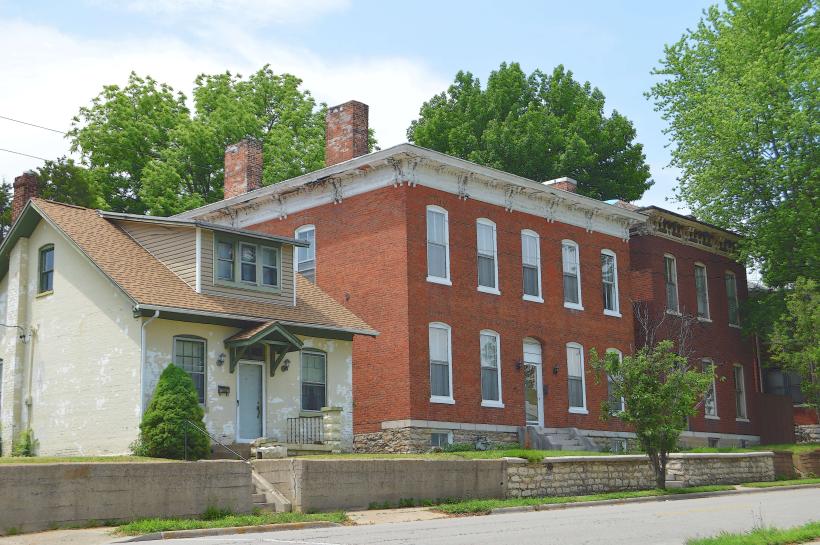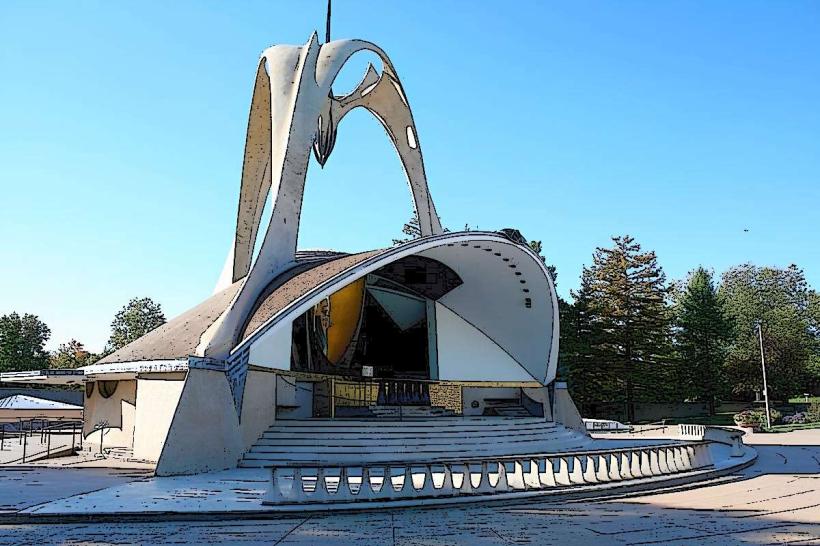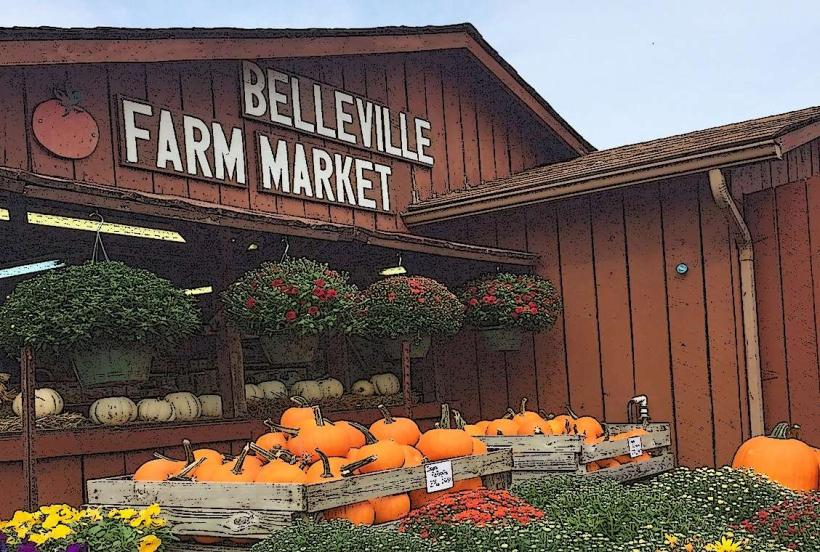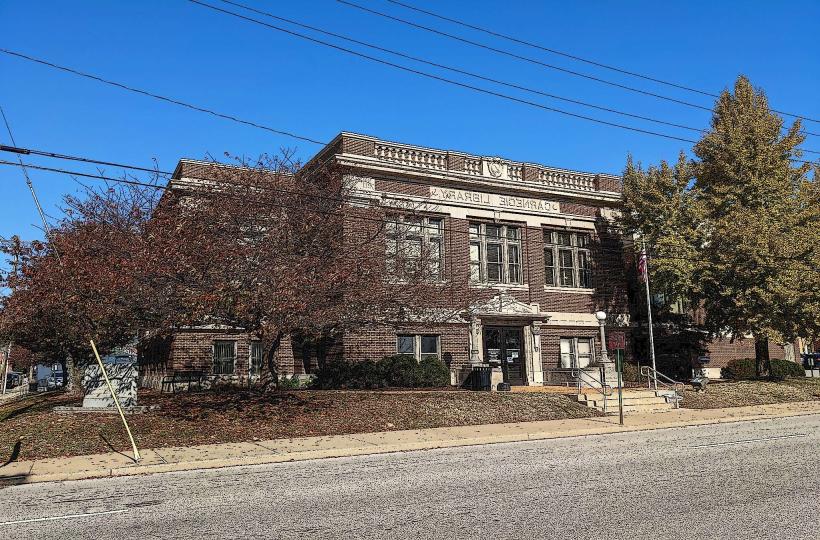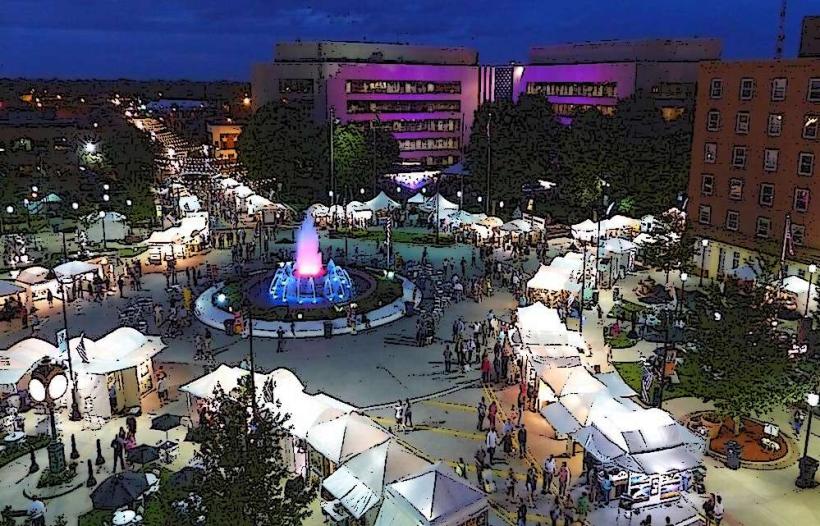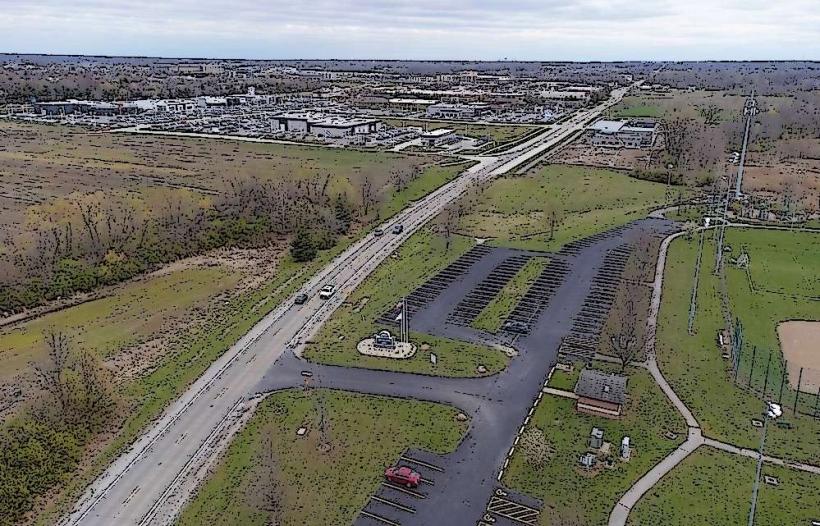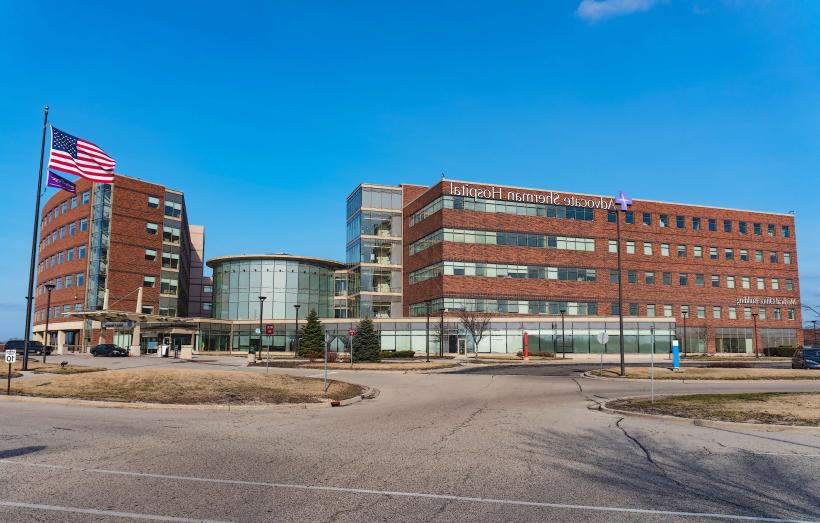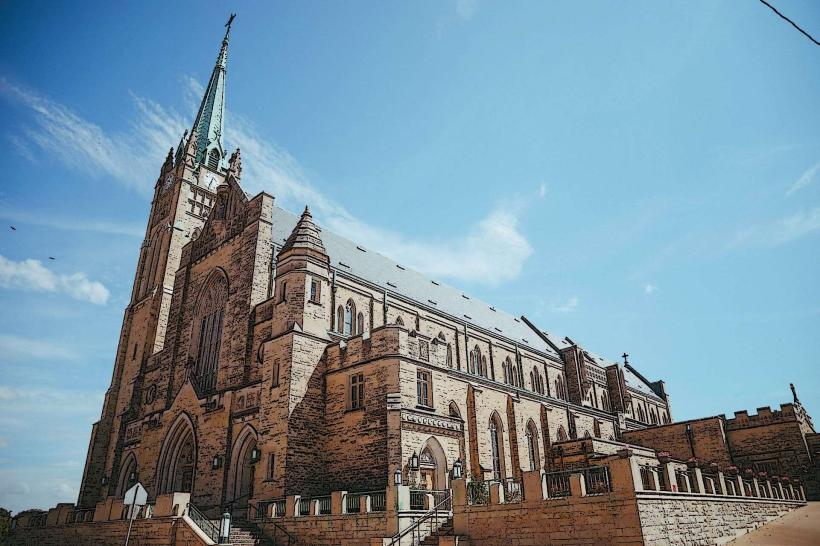Information
Landmark: Bellevue Botanical GardenCity: Belleville
Country: USA Washington
Continent: North America
Bellevue Botanical Garden, Belleville, USA Washington, North America
Bellevue Botanical Garden is a prominent 53-acre public garden located in Bellevue, Washington, designed to celebrate the natural beauty and plant diversity of the Pacific Northwest. Established in 1992, the garden combines carefully curated horticultural displays with natural woodland and wetland restoration, providing visitors with a rich experience of both cultivated and native environments. It serves as an educational, recreational, and conservation resource, attracting gardeners, nature lovers, families, and tourists year-round.
Location and Layout
Situated at 12001 Main Street in Bellevue, the garden is easily accessible from downtown and nearby communities. The layout is thoughtfully designed to blend formal and informal garden styles with preserved natural areas, offering a harmonious transition between cultivated plantings and native ecosystems. Visitors can explore a variety of themed garden sections connected by accessible paved trails, making the experience welcoming for all ages and abilities.
Key Garden Areas and Features
Perennial Border: One of the largest public perennial gardens in the United States, this garden was designed by renowned horticulturists Charles Price and Glenn Withey. It features a stunning succession of flowering perennials and ornamental grasses, providing vibrant color and texture through all seasons. The border showcases a wide variety of plants that thrive in the Pacific Northwest climate, encouraging sustainable and attractive gardening practices.
Yao Garden: This tranquil Japanese-style garden honors Bellevue’s sister city relationship with Yao, Japan. It includes traditional elements such as stone lanterns, a teahouse, a koi pond, Japanese maples, and azaleas. The garden is designed to evoke a sense of calm and reflection, emphasizing the principles of harmony and natural beauty characteristic of Japanese garden aesthetics.
Fuchsia Garden: Maintained since 1992 by the Eastside Fuchsia Society, this garden displays an impressive collection of fuchsia species and hybrids. Known for their delicate, pendulous flowers in vivid colors, fuchsias are a favorite among gardeners and visitors interested in unique flowering shrubs.
Native Discovery Garden: Dedicated to showcasing plants native to the Pacific Northwest, this garden educates visitors about local flora and promotes low-maintenance, eco-friendly gardening. It emphasizes plants that support local wildlife and conserve water, inspiring gardeners to adopt sustainable landscaping techniques.
Waterwise Garden: Demonstrating drought-tolerant and water-efficient gardening methods, this section combines native and adapted plant species suited to drier conditions. It offers practical ideas for reducing water use without sacrificing garden beauty.
Rhodedendron Glen: A shaded woodland garden featuring a diverse range of rhododendrons and azaleas, displaying a spectacular array of blooms in spring.
Rock Garden: This garden mimics alpine environments and features hardy, low-growing plants adapted to rocky, well-drained soil.
Iris Rain Garden: Integrating functionality with aesthetics, this rain garden collects and filters stormwater runoff while showcasing beautiful iris varieties, demonstrating how sustainable landscaping can address environmental challenges.
Shorts Ground Cover Garden: Highlights a variety of low-growing plants effective as ground covers, useful for controlling erosion and reducing lawn areas.
Urban Meadow: A naturalistic area planted with native grasses and wildflowers, promoting biodiversity and creating habitat for pollinators and wildlife.
Trails: Two main trails-the Tateuchi Loop Trail and Lost Meadow Trail-provide paved, accessible paths weaving through diverse garden areas and connecting key points of interest.
The Ravine Experience: A popular hiking feature with a 1/3-mile trail leading to a 150-foot suspension bridge. This elevated bridge offers panoramic views over a ravine and wooded hillside, giving visitors a unique perspective on the garden’s natural terrain.
Visitor Amenities
Bellevue Botanical Garden is open daily from dawn to dusk, welcoming visitors year-round. The Visitor Center operates Monday through Saturday, 9 a.m. to 4 p.m., and offers resources such as maps, educational materials, and information about programs and events.
The garden is fully accessible, with paved trails and accessible restrooms to accommodate visitors with mobility challenges. Pets are not permitted, except for service animals, ensuring a peaceful and safe environment for all guests and wildlife.
On-site amenities include:
Trillium Store: A boutique offering garden-related merchandise such as books, artwork, jewelry, and plants, perfect for gifts or personal mementos.
Copper Kettle Coffee Bar: Serving organic, fair-trade coffee, baked goods, sandwiches, and salads, the café provides a relaxing spot for visitors to refresh while enjoying garden views.
Educational Programs and Events
Bellevue Botanical Garden is a center for horticultural education and community engagement. It offers a variety of classes, workshops, lectures, and guided tours aimed at all ages and experience levels. Programs cover topics such as sustainable gardening, native plants, garden design, and wildlife habitat creation.
Annual signature events include:
Garden d’Lights: A renowned holiday event featuring over 500,000 lights artfully arranged into dazzling displays of plants, flowers, animals, and festive shapes. This event runs from late November through December and draws thousands of visitors, creating a magical winter experience.
Arts in the Garden: Held typically in late summer, this event showcases three-dimensional art installations throughout the garden. It brings together artists and nature, blending creativity with the natural environment to inspire visitors.
Additional seasonal events and plant sales further engage the community and provide opportunities for gardeners to expand their collections.
Conservation and Volunteerism
The garden emphasizes environmental stewardship through its plant collections and sustainable maintenance practices. It serves as a living laboratory for conservation efforts, including native plant preservation and habitat restoration.
Volunteers are integral to the garden’s success, contributing over 15,000 hours annually. Volunteer roles include supporting educational programs, maintaining garden beds, assisting at events, and outreach activities. Volunteers must be at least 18 years old and complete an annual background check, ensuring a safe and committed community of helpers.
Summary
Bellevue Botanical Garden offers a comprehensive and immersive horticultural experience that balances formal beauty with natural landscapes. Its wide variety of garden types, accessible trails, and educational programs make it a vital cultural and environmental resource for the Pacific Northwest region. The garden fosters appreciation for plant diversity, promotes sustainable gardening practices, and provides a peaceful retreat for visitors to connect with nature in a dynamic urban setting. Through its engaging events and active volunteer base, Bellevue Botanical Garden continues to enrich the community’s connection to the natural world.


